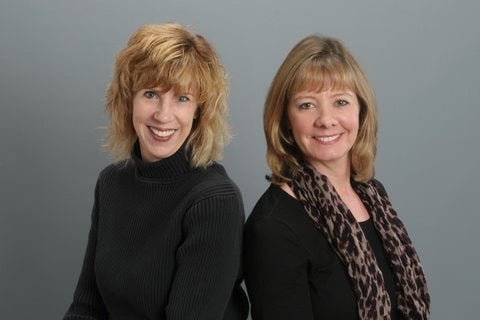Team Develops Anti-Bullying Niche Market
 Photo/Courtesy
Donna Shea, left, and Nadine Briggs, right, saw opportunity in the state's new anti-bullying legislation.
Photo/Courtesy
Donna Shea, left, and Nadine Briggs, right, saw opportunity in the state's new anti-bullying legislation.
For Donna Shea, director of the Harvard-based Peter Pan Center and Nadine Briggs, owner of Westford-based Smart Social Kids, collaborating was probably just a matter of time. Both women share a goal in helping kids make and keep friends.
Add a new state mandate for bullying prevention in schools to the mix, and the two business owners joining forces was even more likely, as schools struggle to comply with the law.
The legislation, signed by Gov. Deval Patrick in May 2010, was in response to the suicide of high-school student Phoebe Prince on Jan. 14, 2010. Schools’ anti-bullying plans, which should outline bully reporting methods and prevention efforts, were due Dec. 31. With the clock ticking, a late-December Boston Globe report stated 40 percent of schools had yet to file plans with the commonwealth.
Enter Shea and Briggs with a solution.
Life Experience
The pair created Social Success in School, a proactive training program designed to prevent bullying before it starts. And all indicators are that with the advent of cyber-bullying, recent youth suicides from bullying, and the state requirement, business is growing and will continue to grow. The pair has previously presented programs together in Ashburnham and Natick. Within the first few days of launching Social Success in School, inquiries began coming in.
Their formula to stop bullying before it starts involves early conflict resolution and respect. Bullying will lessen with schools adopting an overall environment heavy on empathy and communication, they say. Social Success in School involves the entire school: “Everyone from principals to custodians,” according to a program press release.
The program results are multi-faceted and beneficial on a number of levels. Shea says some bullies target other children to make themselves seem more popular. But true social and behavioral success, she says, boosts everyone’s confidence and self-esteem in a very real way — eliminating a need for bullies to bully but also making the school environment more conducive to academic success.
Briggs has two children, one of which has Down syndrome, and met Shea when she brought her now-14-year-old to The Peter Pan Center for services several years ago. Shea has two grown sons, both of whom have attentional issues.
"We have walked the walk with our own kids," said Briggs. Shea started her business in 2002, Briggs began hers in 2007, and two have been working together on certain projects for a few years now.
Technological Changes
The Internet, both agree, further complicates bullying and communication between youth. In fact, Shea said, most bullying occurs online — off school grounds. It’s no longer a bully at recess but a bully behind a keyboard many kids fear.
“Do not text in anger; wait 24 hours, is our guideline,” said Shea. Sometimes texts’ tone or meaning can be misinterpreted. Briggs said parents should not only have a child’s Internet passwords, but Google their name regularly — not just to see what they are doing on Twitter— but also to see if anyone has set up a fake Facebook account in their name.
The advent of texting likely means more kids are communicating via text than actually talking.
“We help kids work on their face-to-face skills,” said Shea. Briggs said a lot of children in kindergarten through the sixth grade just don’t know how to interact.
“They may walk up to another kid and start poking them — they just don’t get that that’s socially inappropriate.”
Other kids don’t understand sarcasm, they said, or that someone could bump them accidentally while walking by. Victims of bullying may need coaching on non-threatening language to help defuse the situation.
Both Briggs and Shea see a continuing need for what they do. In January their book is coming out, “How to Make and Keep Friends.”
“Most parents we talk to find it more upsetting if their kid doesn’t have friends than if their child isn’t doing well academically,” Shea said.
Susan Shalhoub is a freelance writer based in Dudley. She can be reached at sshalhoub@gmail.com.
Correction: An earlier version of this article incorrectly stated that Shea had two children. Brigg has two children, one of which has Down syndrome. The article has been updated.









0 Comments